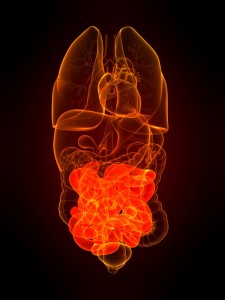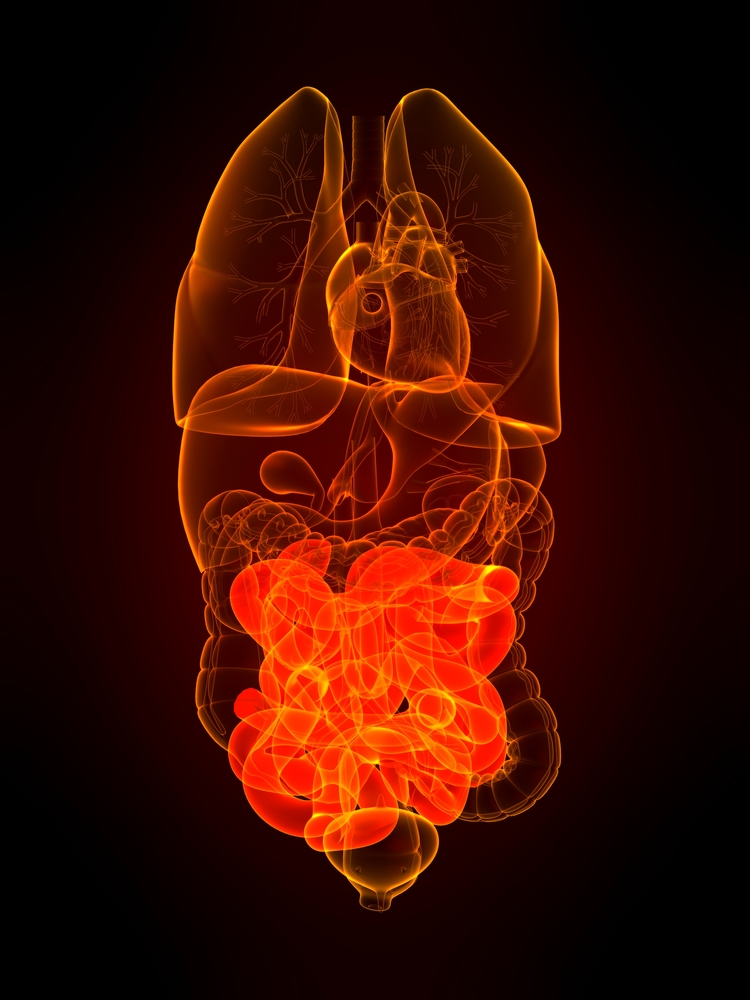 A group of researchers from the University at Buffalo School of Medicine and Biomedical Sciences, have published their latest results “Oral Interleukin-10 Alleviates Polyposis via Neutralization of Pathogenic T-Regulatory Cells” in The Journal of Cancer Research, whereby an oral biologic medication has successfully treated chronic, precancerous inflammation in the intestine.
A group of researchers from the University at Buffalo School of Medicine and Biomedical Sciences, have published their latest results “Oral Interleukin-10 Alleviates Polyposis via Neutralization of Pathogenic T-Regulatory Cells” in The Journal of Cancer Research, whereby an oral biologic medication has successfully treated chronic, precancerous inflammation in the intestine.
Polyps are characterized by an infiltration of inflammatory cells in the colon, a common biological process in people aged 50 and older. In fact, the average 60 year old has a 25% chance of developing polyps, which can sometimes progress into colon cancer. Due to their capacity of becoming malignant, the majority of polyps are surgically removed.
“Our most important finding is that disease-promoting inflammatory cells in the mouse intestine can be targeted by oral formulations of purified cellular proteins, rendering the inflammatory cells less able to cause disease,” first author Allen Chung, an MD/PhD student in the UB medical school’s Medical Scientist Training Program said in a Buffalo’s news release.
Oral biologics are drugs based on molecules derived from natural substances from humans, animals or microorganisms that do not need to be injected, making it more user-friendly for the patients. Even though this drug was delivered orally, it only delivered its pharmaceutical content when it reached the intestine. “We found that high pharmacologic levels of the bioactive drug of interest can be achieved at the intestinal surface without systemic circulation of the drug,” Chung explained in the news release. This means that major toxic side effects in the kidneys, liver and brain tissue, can be bypassed.
The researchers used mice models of precancerous polyps in the bowel to understand which immune cells contribute to disease progression in an inflamed intestine. These cells were then manipulated to loose their pathogenic potential.
Dr. Chung’s team then managed to deliver the immuno-modulatory compound interleukin-10 (encapsulated within polymer micro-particles), into the inflamed intestine, successfully reducing the speed and severity of polyp formation, and relieving associated symptoms of anemia, enlarged spleen and weight loss.
“Site-specific oral therapy for intestinal disorders is a promising avenue of research. It has long been known that inflammation within the colon increases the risk of developing colon cancer. There are also genetic mutations that predispose individuals to develop colon cancer in early adulthood — and these individuals have been found to develop intestinal inflammation even before the appearance of their neoplastic disease”, Dr. Chung said in the press release.
“We are now involved in studies which hope to determine whether some of the immunologic phenomenon we observed in our mouse models are representative of intestinal disease in human patients who harbor genetic mutations which predispose them to develop colon cancer,” Dr. Chung concluded.


